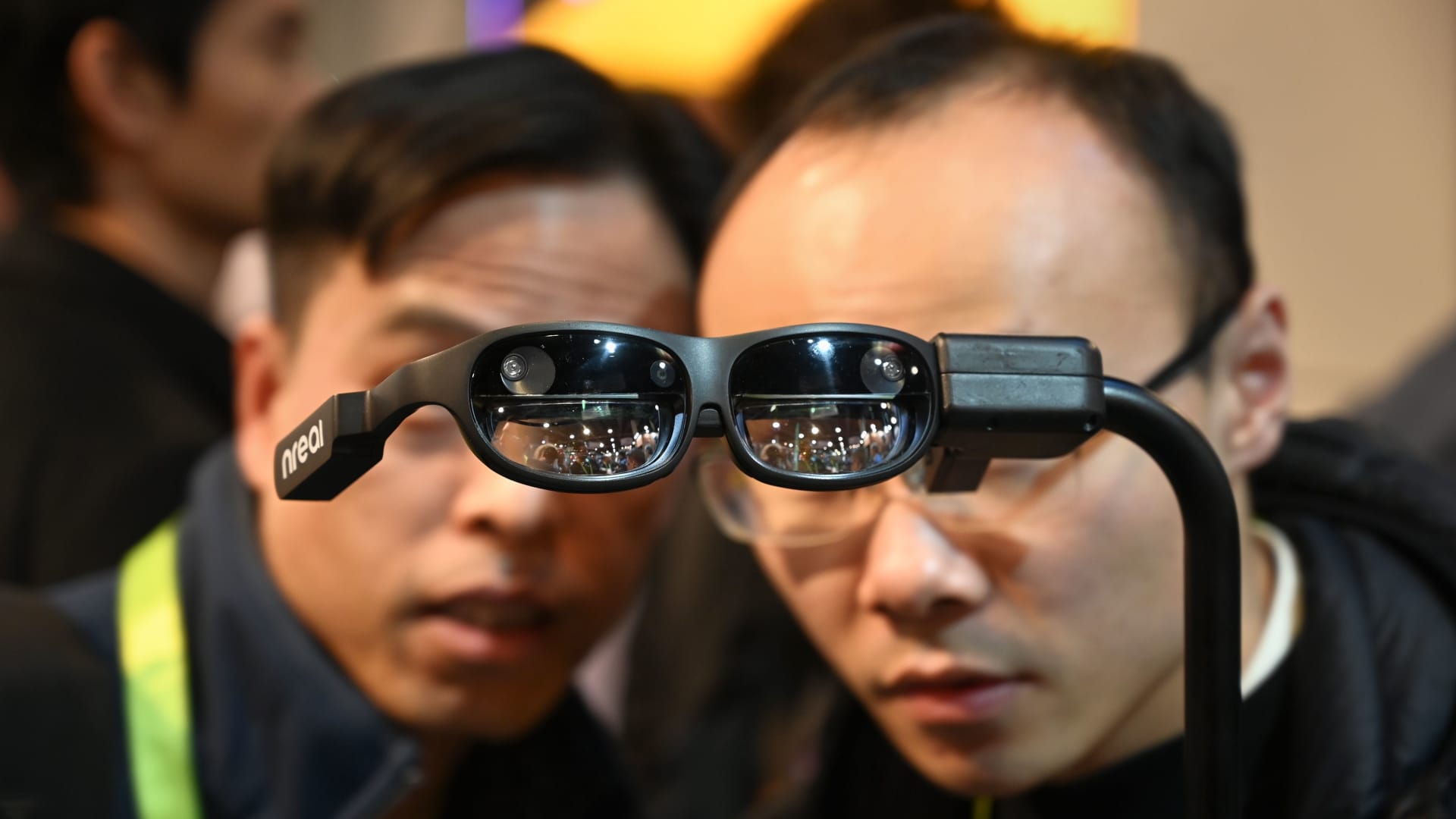Chinese start-up Nreal is launching its augmented reality glasses in the UK this spring

Nreal, a Chinese augmented reality start-up, is planning to bring its smart glasses to the U.K.
The Beijing-based company said Tuesday it will launch its Nreal Air AR glasses in Britain later this spring through an exclusive deal with local carrier EE, which is owned by telecoms group BT.
Nreal’s glasses allow users to watch movies or play games on large virtual displays. Users can do so by connecting the glasses to their smartphone through a cable. They’re designed to look like sunglasses, similar to Snap’s Spectacles line of smart glasses.
The Nreal Air has two main modes: “Air Casting” and “MR Space.” Air Casting lets users view their phone screen on a 130-inch virtual display when standing four meters away, while MR Space combines digital objects with a user’s surrounding space.
Nreal did not give an exact release date or price for the device. A spokesperson said more details will be revealed “at a later date.”
Buzz around the metaverse
Nreal is one of countless companies hoping to bring augmented reality — which blends three-dimensional digital objects with the real world — to a more mainstream audience. The tech has been around for years but, like virtual reality, it has struggled to find commercial success.
Now, with the tech world abuzz with talk about the so-called “metaverse,” it’s given technologies like AR and VR a new lease on life. Companies like Microsoft and Facebook, or Meta as it’s now known, want to build vast digital worlds in which millions of users can interact — and transact — with one another.
Peng Jin, co-founder of Nreal, said he believes AR “will start a revolutionary transformation just as the internet once did.”
“AR will transcend the current mobile experience, especially when it comes to watching videos, exercising, and playing PC and cloud video games,” he added.
Founded in 2017, the company has created two AR headsets to date: the Nreal Light and Nreal Air, the latter of which it debuted last year. The company has raised over $230 million to date from investors including Alibaba, Nio and Sequoia Capital China. It was most recently valued at $700 million.